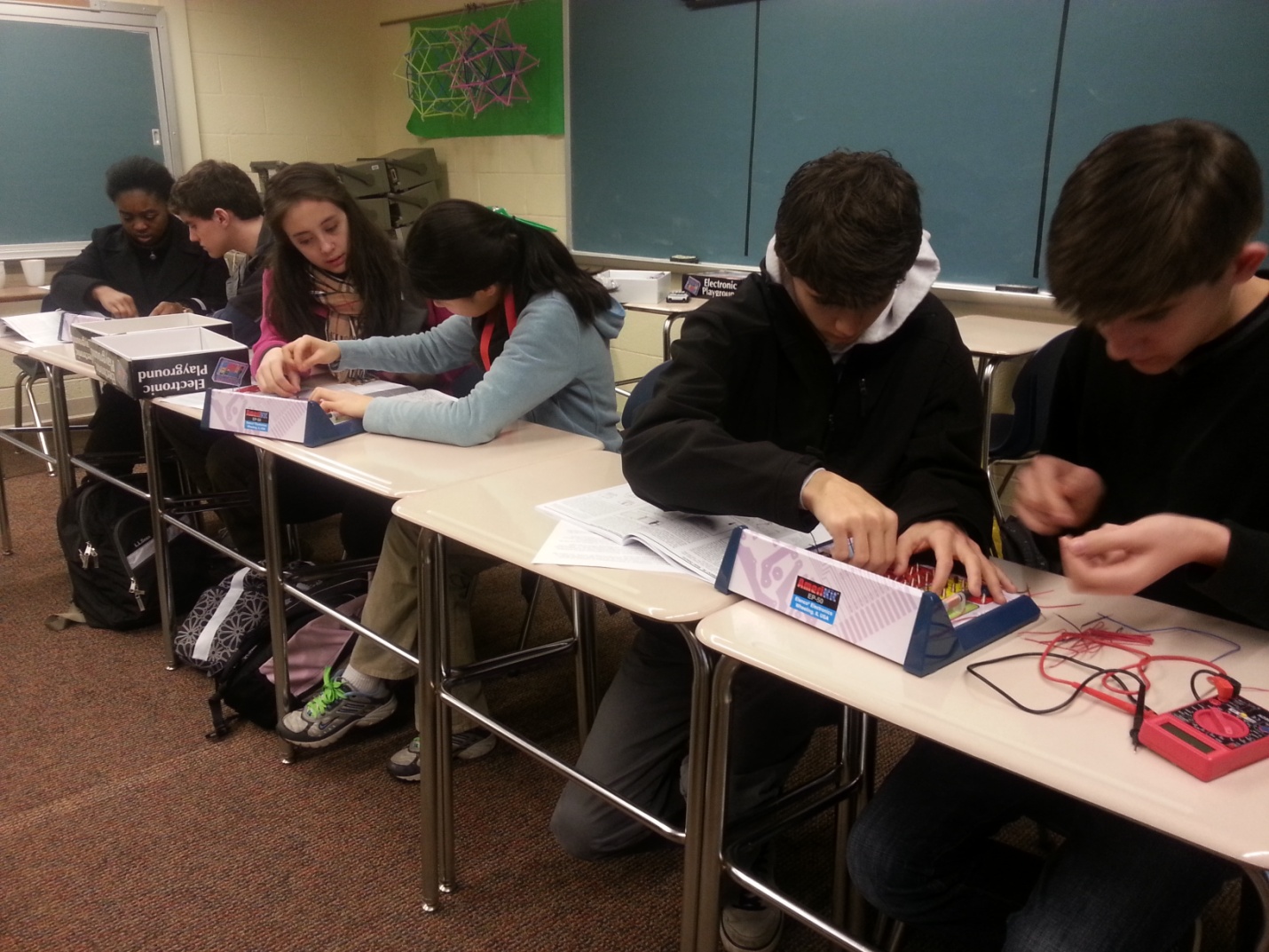Dr. Yanko Kranov leads STEM workshops
One of the most important and impactful initiatives in current education reform is STEM. The acronym, which stands for science, technology, engineering, and mathematics education, was created as an easy-to-remember way for referencing these areas of school curricula. Many business and political leaders express growing concern that not enough Americans, especially women and minorities, are headed into these fields.
Being an active participant in the local community and striving to reach out to K-12 schools and institutions, the Loyola University Maryland Engineering Department extended its hand and originated a three-way collaboration with Friends School of Baltimore and ABET, the global technical education accrediting body headquartered in Baltimore. The idea is to assist Friends with forming a STEM advisory committee of parents, teachers and students, and also to provide materials and technological support, as well as input on the types of opportunities that can be provided to students.
The leads from each organization are: Dr. Sujata Ganpule, Friends School Math Teacher and STEM coordinator, Dr. Yanko Kranov of the Loyola Engineering Department, and Dr. Rochelle Williams, ABET Educational Research and Assessment Manager.
The first step was the implementation of several workshops that provided students the opportunity to go beyond the theoretical concepts covered in their math or sciences classes and to develop and test by themselves those same theories in the form of actual hands on experiences. Dr. Kranov led two activities, covering topics that included electricity and magnetism, properties of solids, propagation of waves and radio technology.
The feedback from students indicates that there is definite interest in STEM at Friends School. This collaboration is beneficial for building the foundational competencies in students, but also for strengthening the pathways from secondary education to higher education and into industry to address national needs in the technical fields.
Here are some examples of student feedback about two STEM workshops led by Dr. Kranov:
“The thing that I loved most about the workshop, was that it was a hands on experience, not just a lecture on what he does--not that I don't like the lectures, I just appreciate the hands on. If by format you mean, the way in which he gave information than allowed us to do the experiments, than I thought it was good, but I would have liked just a little more information on the experiments. But, if we did spend more time on the information, we might not have had the experience of doing all the experiments. Overall, I loved the workshop.”
Thank You!
Augustina
“I really liked it! I liked how hands-on it was; it was a very relaxed and fun environment.
I'm looking forward to the next one!”
-NB

“I enjoyed this morning’s workshop. I liked how it was interactive rather than a speaker coming in and just lecturing. I wish we had more time to make more circuits because it was a fun, and educational.”
Matt
“I LOVED it, was very impressed by how many kids were there, and thought the format/pace/content were perfect. Those kits were so great – I want one to play with!”
David
“I thought the workshop this morning was really fun! I learned a lot of new things like how to make a trip- wire and graphite keyboard. My favorite part was learning that salt-water conducted electricity a lot better than just water alone. I also thought that working with a partner made it a lot easier than if I just did it on my own. There was really nothing that I would want to change because I think the workshop ran smoothly. Thank you for including me and I look forward to more STEM activities.”
David
